MARITIME MANPOWER FACTBOOK 2018
1. INTRODUCTION
The Philippine Maritime Manpower Factbook 2018 is an initiative to gather and present in one comprehensive report the data and statistics in the Philippine Maritime Industry to make these readily available and accessible to industry stakeholders.
Primarily, it aims to provide a picture of the Philippine maritime manpower sector, presented in facts and figures that are derived from existing data from various data source agencies, published reports and research findings. Further, other significant country data are provided to give a holistic snapshot of the Philippines as a maritime nation subject to the availability of data from sources.
1.1 Background
The Philippines sustains its position as a major manpower supplying country, ranked among the top five countries that supply the largest number of seafarers in the international maritime labor market (BIMCO/ICS Manpower Report 2015). Moreover, as maritime nation, shipping is a main transport system by which islands are linked and the country connected to international trade and commerce.
Indeed, the country’s maritime industry is a vital component of its economic development. In the country paper for United Nations Economic and Social Commission for Asia and the Pacific, a responsible and modern Philippine registered fleet, supported by quality seafarers and capable shipyards, are identified to pave way for stability of trade, promote national development and national security (UNESCAP, 2013).
To uphold the country’s position as a major provider of competent and competitive seafarers in the international maritime fleets as well as achieve a modern and robust domestic maritime transport system, necessary and vital support is the generation of reliable and timely data on key indicators and statistics that can be accessed readily by the stakeholders for policy and program review and development.
However, currently there is a dearth of available country report containing comprehensive, updated and centralized data that can be found in one location for easy access by industry stakeholders.
1.2 Significance of the Study
This research project will provide a valuable tool to industry stakeholders, affording them valuable data and statistics on the country’s profile as a maritime nation readily accessible for decision making in policy and program development.
1.3 Scope and Limitation
The Maritime Manpower Factbook covers data on the country’s sea-based skills related indicators and statistics from both domestic and international sources. It also includes other relevant industry data.
Specifically, data were generated from regulatory bodies as source agencies such as MARINA, POEA, CHED, PCG, PPA, Central Bank of the Philippines; from studies and regularly published reports namely, BIMCO/ICS, Drewry Manning, UNCTAD Review; and from research reports.
The data covered are primarily within the period 2013-2017.
1.4 Objectives of the Study
The Maritime Manpower Factbook aims to establish in one location an updated data on the Philippine maritime manpower profile, including other industry-related data. Specifically, the objectives are to gather facts and figures to generate the following:
1. World seaborne trade and global manpower supply-demand statistics
2. Philippine maritime manpower profile and remittances of Overseas Filipino
Seafarers
3. Profile of support to manpower development like the Philippine maritime education
and training institutions.
4. Philippine domestic and overseas merchant fleets
0 Comment(s)
Upcoming Event
Research Archives
- MANAGING THE THREATS OF COVID-19 TO SEAFARERS' HEALTH AND WELL-BEING: RESPONSE OF THE PHILIPPINE MARITIME INDUSTRY (PHASE 2)
- PHILIPPINE DOMESTIC MARITIME INDUSTRY'S COMPLIANCE WITH MLC, 2006: CHALLENGES OF IMPLEMENTATION
- ISSUES AND CONCERNS ON THE NON-RATIFICATION OF THE PHILIPPINES OF THE INTERNATIONAL CONVENTION ON STANDARDS OF TRAINING, CERTIFICATION AND WATCHKEEPING FOR FISHING VESSEL PERSONNEL (STCW-F)
- PHILIPPINE MARITIME MANPOWER FACTBOOK 2020 & 2021
- THE CAPACITY OF THE PHILIPPINE MARITIME INDUSTRY TO PRODUCE OFFICERS-IN-CHARGE (OIC) PER STCW REQUIREMENTS: FOCUS ON THE ONBOARD TRAINING (OBT) OF CADETS
- PHILIPPINE EMPLOYMENT LAWS RELATIVE TO SEAFARERS: FOCUS ON THE PHILIPPINE ARBITRATION SYSTEM AND AMBULANCE CHASING
- EMPLOYMENT ACCEPTABILITY OF WOMEN IN PHILIPPINE DOMESTIC SHIPS
- AUTONOMOUS SHIP TECHNOLOGY: ITS IMPLICATIONS TO PHILIPPINE MARITIME INDUSTRY
- REQUIRED NON-TECHNICAL (ESSENTIAL) SKILLS BY EMPLOYERS FOR SHIPBOARD EMPLOYMENT OF MANAGEMENT LEVEL OFFICERS
- PERCEPTION OF NMP FEMALE TRAINEES TOWARDS THE SEAFARING PROFESSION
- HARBOR PILOTAGE IN THE PHILIPPINES A REVIEW OF INTERVENTIONS IN LICENSING, APPOINTMENT AND CAPABILITY BUILDING OF HARBOR PILOTS
- NMP GENDER SENSITIVITY TRAINING FOR SEAFARERS (GSTS) COURSE: A PROGRAM EVALUATION
- SKILLS GAP ANALYSIS OF MARITIME FACULTY IN PHILIPPINE MARITIME HIGHER EDUCATION INSTITUTIONS
- RESPONDING TO THE FILIPINO SEAFARERS’ TRAINING REQUIREMENTS IN THE STCW 2010 MANILA AMENDMENTS: CHALLENGES AND OPPORTUNITIES
Subscribe to our Newsletter
Discover the latest upcoming and ongoing research. Don't forget to pre-register for the upcoming events.
Updates will be notified through your registered email to this portal.

